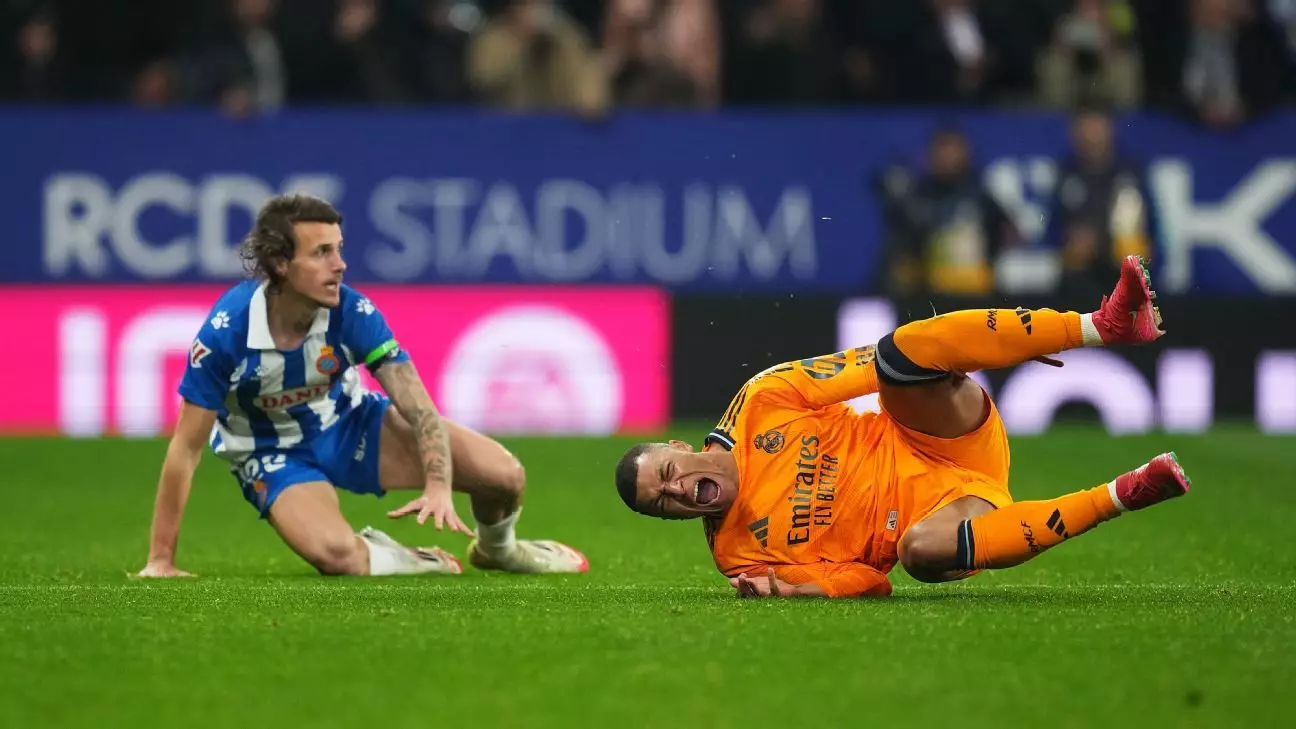In the ever-charged atmosphere of LaLiga, a recent incident has spotlighted the contentious relationship between Real Madrid and the officials governing Spanish football. Following their narrow 1-0 defeat to Espanyol on February 1, Real Madrid formally issued a complaint to the Spanish Football Federation (RFEF), raising alarms about the integrity of the refereeing system. The club’s frustration culminated in a searing four-page open letter which was sent to the RFEF, characterized by vehement claims of manipulation and a systematic rooting of incompetence among match officials.
A pivotal moment highlighting Madrid’s grievances was the contentious decision during the match, where referee Alejandro Muñiz Ruiz opted not to issue a red card to Carlos Romero for a serious foul on superstar Kylian Mbappé. In an ironic twist, Romero later scored the lone goal of the match, a scenario that deeply aggravated Madrid’s discontent. To further complicate the situation, an earlier goal by Vinícius Júnior was overturned, adding to the club’s assertions that referee decisions had a detrimental impact on the match’s outcome.
The accusation that the refereeing system is “completely discredited” illustrates the gravity of Madrid’s stance. Such assertions challenge the very foundation of officiating in LaLiga and leave a trail of skepticism among fans and pundits alike. Madrid’s leadership pointed to these events as being beyond interpretation, arguing that they represent a failure not only of individual officials but of the system at large.
In response, LaLiga President Javier Tebas dismissed Madrid’s claims as a form of victimization, accusing the club of losing touch with reality. This reaction highlights an escalating tension that drags the league into choppy waters. The notion of mutual accountability was thrust into the spotlight when Tebas announced LaLiga’s plans to initiate its own complaint against Real Madrid’s public outcry, further entrenching the divide between the league and one of its most powerful clubs.
At the heart of this escalating debacle lies a fervent request from Madrid for transparency. The club has urged for the release of audio recordings capturing conversations between the on-field referee and the Video Assistant Referee (VAR), emphasizing the need for accountability in officiating. By demanding these recordings, Madrid is not merely seeking validation of their claims but is also advocating for greater transparency in football governance.
The implications of this unrest resonate beyond the confines of the club; they reveal a broader concern within the footballing landscape regarding the integrity of officiating—a topic that transcends Real Madrid and touches on the ethics of the sport itself. As both sides prepare for further disputes, fans are left wondering how a resolution can be achieved when the foundations of trust appear to be crumbling.
This saga raises critical questions about the potential paths forward. Will LaLiga take steps to reform its officiating process, or will both parties cling to their narratives, leading to prolonged disputes? As the landscape of Spanish football adapts to increased scrutiny, the onus may well lie on the governing bodies to foster reforms that restore confidence among players, clubs, and fans alike.
The evolving narrative surrounding refereeing complaints in LaLiga encapsulates not just a rivalry fuelled by passion but also a significant crossroads for the sport. Addressing such concerns with transparency and accountability will be essential if LaLiga hopes to reclaim its standing and ensure the integrity of the beautiful game remains intact.

